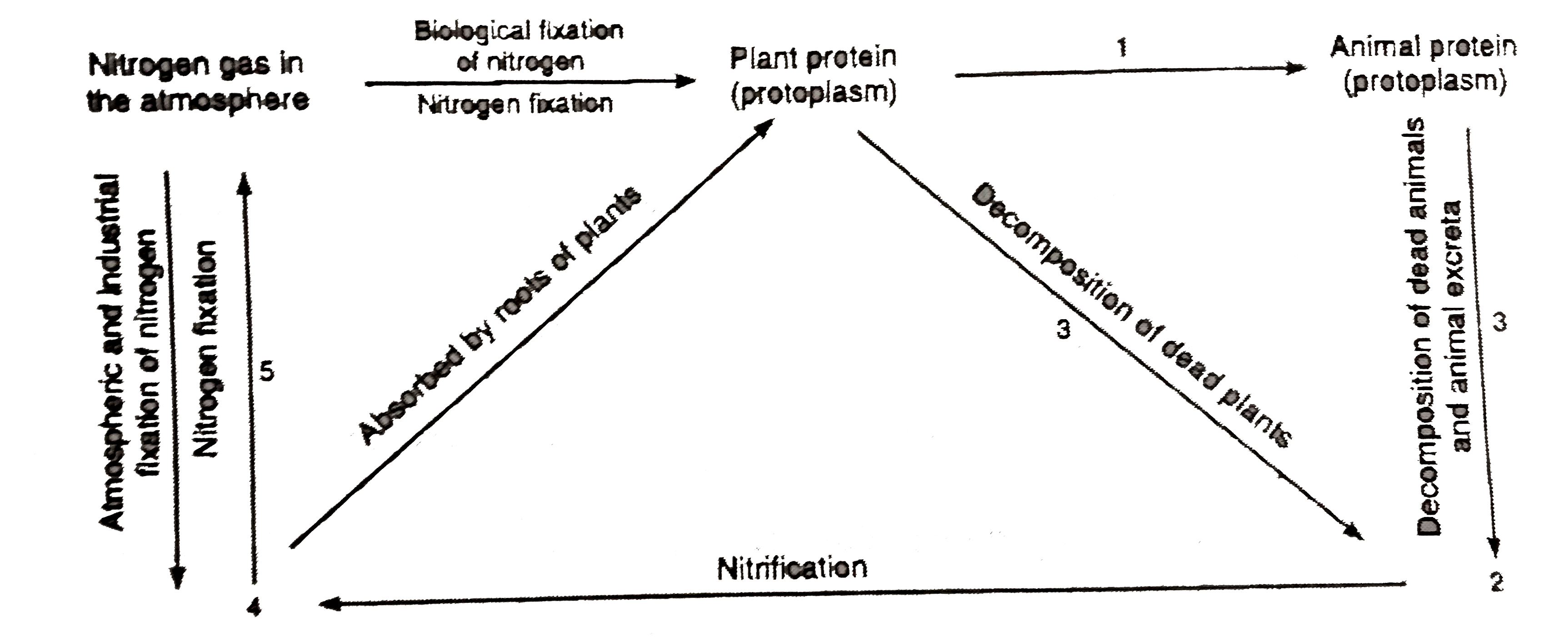What is ammonification?
Step-by-Step Solution:
1. Definition of Ammonification: Ammonification is a biological process that involves the conversion of organic nitrogen from dead plants and animals into ammonia.
2. Source of Organic Nitrogen: The organic nitrogen comes from the decomposition of dead organisms, which includes both plants and animals.
3. Process of Decomposition: During decomposition, microorganisms break down the complex organic nitrogen compounds found in the tissues of dead organisms.
4. Formation of Ammonia: As a result of this decomposition, ammonia (NH3) is produced, which is a simpler nitrogen compound.
5. Microorganisms Involved: The process of ammonification is primarily carried out by specific bacteria, such as Bacillus ramosus and Bacillus vulgaris, among others.
6. Importance of Ammonification: This process is crucial in the nitrogen cycle as it makes nitrogen available in a form that can be utilized by plants for growth.
Topper's Solved these Questions
- BOOK - MODERN PUBLICATIONCHAPTER - MINERAL NUTRITION EXERCISE - COMPETITION FILE ( OBJECTIVE TYPE QUESTIONS )( E.ADDITIONAL MULTIPLE CHOICE QUESTIONS ) :20videos
MINERAL NUTRITION
- BOOK - MODERN PUBLICATIONCHAPTER - LOCOMOTION AND MOVEMENTEXERCISE - OBJECTIVE TYPE QUESTIONS2videos
LOCOMOTION AND MOVEMENT
- BOOK - MODERN PUBLICATIONCHAPTER - MORPHOLOGY OF FLOWERING PLANTS EXERCISE - CASE BASED SHORT ANSWER TYPE QUESTIONS2videos
MORPHOLOGY OF FLOWERING PLANTS
Similar Questions
Knowledge Check
- Question 1 - Select One
During ammonification,the gaseous NH_(3) changes to its ionic form in the soil when pH is
Ahighly acidicBhighly basicCmore than sixDat seven only
What do you mean by ammonification?
View SolutionWhich microbes are involved in Ammonification?
View SolutionName a bacterium that causes ammonification.
View Solution(a) Fill in the blanks marked 1-5 in figure of nitrogen cycle.
(b) What will happen if the step of ammonification does not take place?
(c) What will happen if the step of denitrification does not take place?
 View Solution
View SolutionWhat is biofortification? What are objectives of it?
View SolutionWhat is galvanization? What purpose is served by it?
View SolutionDifferentiate between the following pairs:
(a) Micronutrients and macronutrients
(b) Ammonification and nitrifications.View Solution

